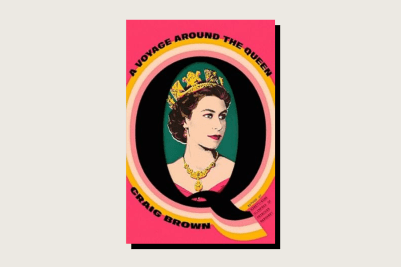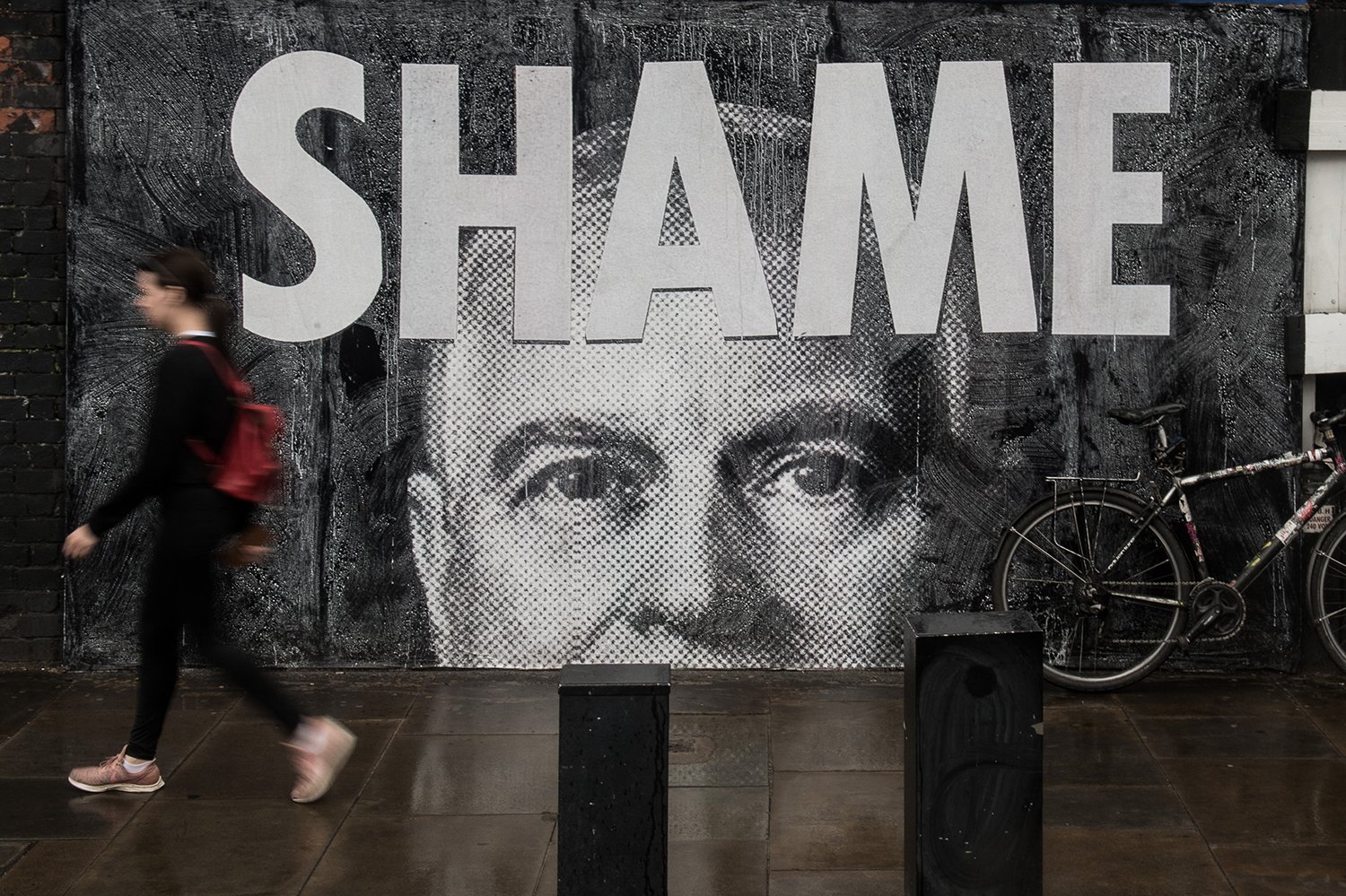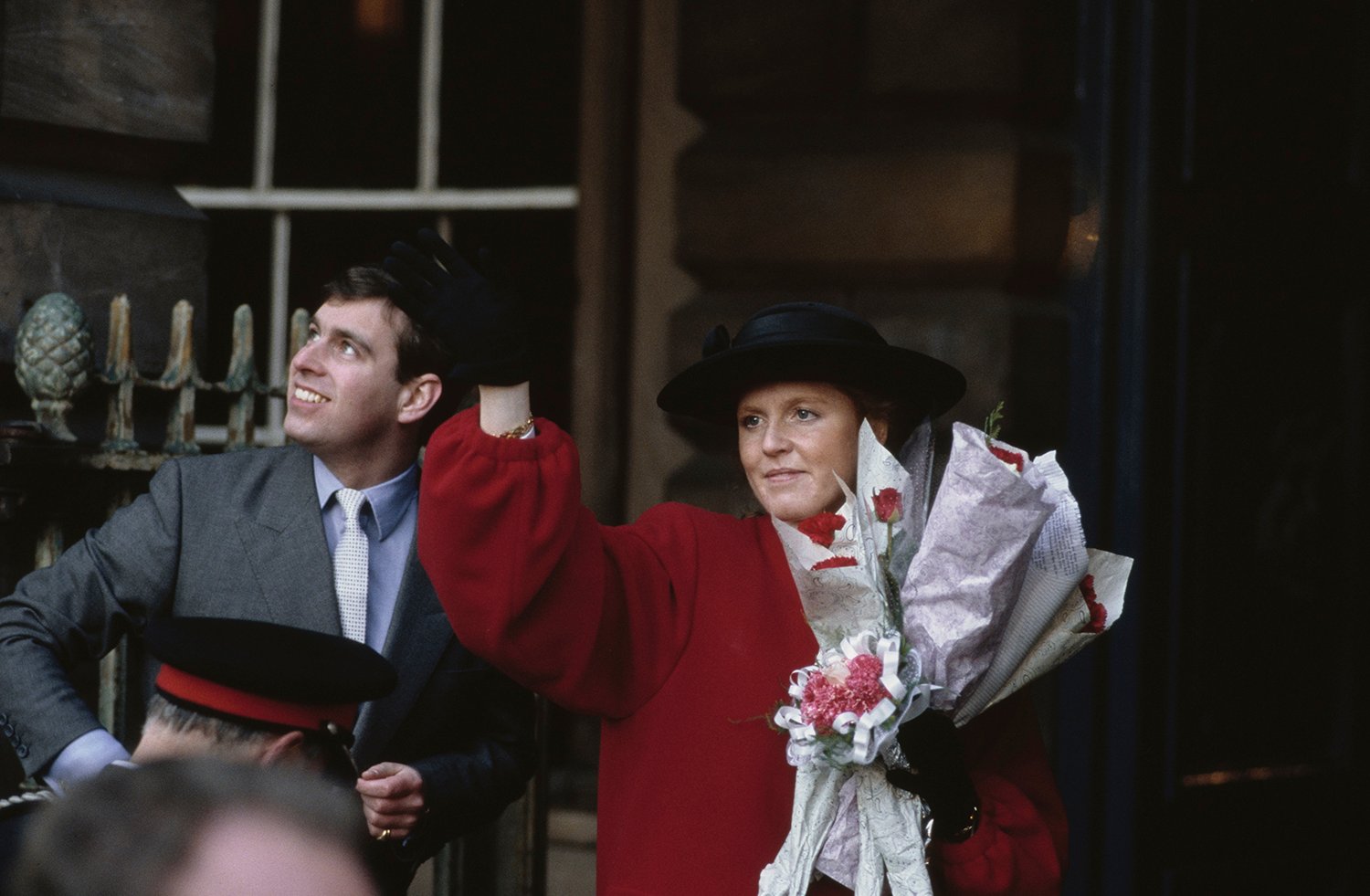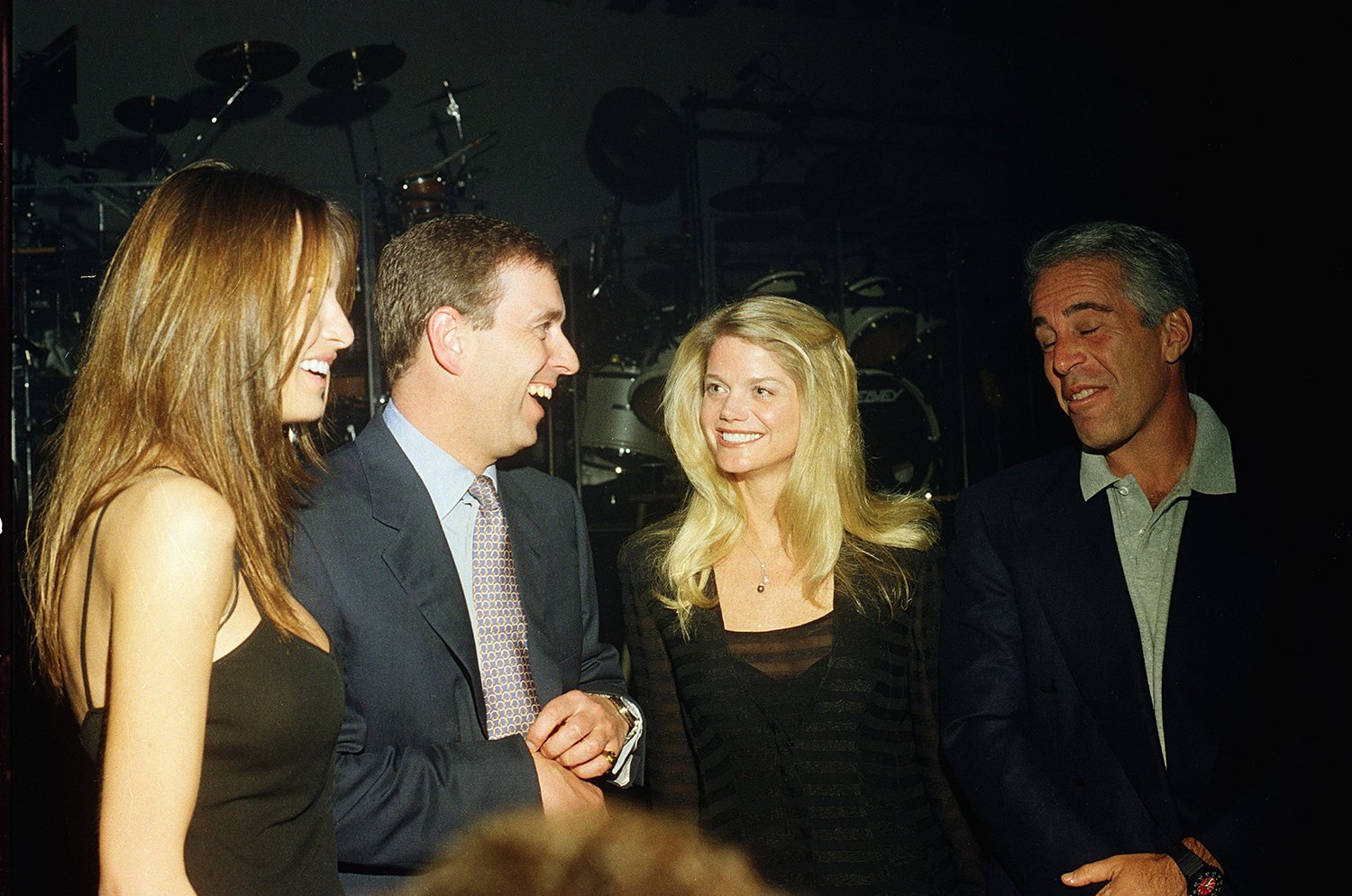One night, the queen of England came to Johnny Cash in a dream. “Johnny Cash! You’re like a thorn tree in a whirlwind,” she remarked. When he awoke, the phrase stuck with him, and over the next seven years, he turned it into his apocalyptic song, “The Man Comes Around.”

Despite his fame, Cash and Queen Elizabeth II had never met. But she occupied a powerful place in his oneiric landscape, just as she did for countless others worldwide. Craig Brown’s book, Q: A Voyage Around the Queen, details many people’s dreams of her, ranging from the banal to the erotic.
It’s one of the ways that Brown approaches a legendarily difficult subject to write about. In the past decade or so, Brown, one of Britain’s finest satirists, has taken his eye for the absurd and started applying it to biography. That includes a book on the chaotic life of the queen’s sister, Princess Margaret, which mixes might-have-beens, dissection of rumors, parody, and anecdote.
Margaret provided a wealth of material. But while most of her sister’s life had been lived in public, Elizabeth herself was professionally boring. She inhabited the role of a constitutional monarch to the fullest and gave nothing of her own self away. In her personal life, she married the handsome young man that she set her heart on as a teenager, and she stayed with him until they both died in their late 90s. When she spoke in public, she spoke not as herself, but as her government.
As the book’s subtitle hints, it isn’t so much about Elizabeth herself as it is about people’s reactions to her. She is the unmoving center around which a crowd of international eccentrics and fantasists turn. It’s a work of fascinating digressions, from an ailing Margaret Thatcher to the Sex Pistols to Elena Ceausescu, the Romanian dictator’s wife. The queen drifts through other people’s lives, occasionally saying, “How very interesting,” or “Have you come far?”
A few moments of Elizabeth’s humanity break through, such as her gentle mothering of a boy who had just lost his twin brother and grandparents as a result of a bombing by the Irish Republican Army. Brown suggests that her love of corgis was because the messy, unrestrained little dogs could behave in ways she couldn’t. When she had to knight an obvious bad egg such as Romanian President Nicolae Ceausescu, who was honored by the British government in 1978 as part of a state visit, she would only go so far as to lightly complain about his boorishness. She confided to a friend that U.S. President Donald Trump was “very rude” and couldn’t stop staring over her shoulder. (Trump proclaimed that people had “never seen the queen have a better time” than when he interacted with her.)

As in his previous books, Brown is interested in the inherent unreliability of biography; he lists out, for instance, the sheer range of claims made about Michael Fagan, the unemployed man who successfully snuck into Elizabeth’s bedroom in 1982 and began talking to her. Their brief conversation has a half-dozen wildly different tellings.
Elizabeth prompted, even in the rich and famous, behavior ranging from the tongue-tied to the insane. When the Japanese multimillionaire Ryoichi Sasakawa, an ultranationalist and suspected war criminal, maneuvered his way into a garden party to see her as part of his lobbying for a Nobel Peace Prize, he flung himself at her feet while wailing. “He can get up, you know,” she remarked.
Sasakawa was bought to that party as a guest of an equally crooked figure: Robert Maxwell, a Czech British businessman. Maxwell’s daughter Ghislaine is now, impressively, more infamous than him. She would later play a critical role in the relationship between her boyfriend Jeffrey Epstein and Elizabeth’s second-oldest son, Prince Andrew.

Andrew, now removed from royal roles in disgrace, was the opposite of his mother—an energetically indiscreet playboy prone to voicing pub-bore opinions. That makes him easier to write about. More traditional books on the British royal family fall into two categories: sycophantic or muckraking. Literary agent and historian Andrew Lownie’s Entitled: The Rise and Fall of the House of York is squarely in the second group, less of a biography and more of a blunderbuss shot at Andrew with every scurrilous story and piece of palace gossip that Lownie can find.

That includes new claims about the extent of Andrew’s relationship with Epstein and Maxwell, who Lownie says was also an “occasional lover” of his. That relationship cost Andrew most of his royal roles after a disastrous interview in which he unconvincingly denied having ever met Virginia Giuffre—one of Epstein’s victims who said the prince slept with her three times when she was just 17—despite her testimony and photo evidence. His reputation in the United Kingdom is trash: This is the kind of book written by an author with full confidence that his subject will never bring a libel suit.
It’s hard to feel any sympathy for the duke of York, but Lownie’s book inadvertently becomes an example of just how easily stories, even unsourced ones, can stick to the royals. Elizabeth’s untouchability means tall tales attach themselves even more easily to other members of the royal family.
The book suffers from an inability to distinguish between the well-attested, such as Andrew’s ties to Epstein, and the tales that Lownie was told once by somebody who knew Andrew decades ago or by anonymous former staffers. Did he really have sex with multiple women before he turned 13? Does he have a secret penchant for handsome young sailors? Is it true that he favors “four-handed massages where two women work on you at the same time,” as one supposed former girlfriend—referred to only by her first name—claims? Does he call maids up to the fourth floor of his house just to open the curtains for him?
Any of these might be true, but I have serious doubts that all of them are. Palace staff and royal hangers-on are a remarkably gossipy bunch with a cheerful disregard for strict accuracy. Back in the early 1990s, I heard a story from Prince Philip’s protection detail about the real reason for then-Prince Charles’s preference for Camilla over Diana that I cannot relay to the innocent ears of Foreign Policy’s readership. I do not think the account was true, but it was both obscene and very funny, which is what made it such an appealing story.

Where Lownie is good is on money—both incoming and outgoing. He shows how Andrew and his former wife Sarah Ferguson, better known as Fergie, felt that their combined income in 1986, after they married, was far less than they needed. Andrew’s naval salary and Fergie’s publishing salary totaled 32,000 British pounds, which is roughly $160,000 today; this was supplemented by around $250,000 in today’s money that the British government paid them annually through the Civil List to cover official expenses. They also received multiple homes and inherited considerable family money.
This was not, however, enough for their needs. Fergie comes across better than her husband in Lownie’s account, not only as a frequently kind and generous friend but also as a sort of Kim Kardashian avant la lettre, forging a multimillion-pound income from deals that ranged from children’s books to Weight Watchers endorsements. But both of them spent at an exhausting rate, leaving many questions about just where their money came from—especially after Fergie was caught on tape in 2010 promising to sell access to her former husband to a tabloid reporter, who was in disguise as a Middle Eastern sheikh, in exchange for more than half a million dollars.
According to Lownie, the couple first met American financier and sex offender Jeffrey Epstein in 1989, roughly a decade before Andrew now claims. The material around Epstein’s ties to Andrew is interesting and often new, and it has prompted a firestorm in the British press, but it’s also chaotically organized and contextless. Lownie demonstrates that Andrew was not a casual friend, but a long-term intimate of Epstein—and one whose value the financier knew, calling him his “Super Bowl trophy.” A more thoughtful book might have considered the wider social world in which Epstein operated for cover—one where, as sociologist Ashley Mears documented in her book Very Important People, the provision of young women who are seen as sexually available is an important form of social connection between the rich and powerful.

Andrew was close to many people in that world, from Middle Eastern playboys, to Central Asian autocrats, to U.S. billionaires, to alleged Chinese spies. Much of his lifestyle, before the Epstein scandal, came with the implicit blessing of the British government, which used him as a “special representative” on trade to curry favor with foreign despots.
The company that Andrew keeps seems particularly terrible, but it’s remarkable just how many con artists and child abusers have latched themselves onto various royals. Brown brings up Rolf Harris, the once-beloved Australian artist and singer who painted Elizabeth in 2005 for her 80th birthday—only to be convicted for serial sex offenses against children several years later. Jimmy Savile, a celebrity posthumously revealed to be one of Britain’s most prolific sexual predators, was an unofficial advisor to Charles and compiled a public relations handbook for the royal family after some tactless remarks by Andrew. Laurens van der Post, a South African writer who was Charles’s long-term friend and spiritual guru, was also posthumously revealed to be a serial liar who sexually abused a 14-year-old girl.

Elizabeth kept herself behind enough layers of reserve to largely avoid this breed of creep and hanger-on. Her children, needier and less canny, did not. But Andrew went a step beyond, not only providing royal patronage to men like Epstein but participating in the world of sex, coercion, and exploitation. As more Epstein material emerges, the full extent of Andrew’s involvement may become, as with other prominent figures close to one of the world’s most connected pedophiles, even clearer.
One of Andrew’s (unnamed) former household members claims that the prince’s favorite book, which he reportedly reads over and over again, is The Talented Mr. Ripley. Patricia Highsmith’s thriller about a sexually ambivalent sociopath who charms, and then destroys, a rich idler is a classic. For Andrew, it may be something of a cautionary tale.
The post All the Queen’s Gossips appeared first on Foreign Policy.




